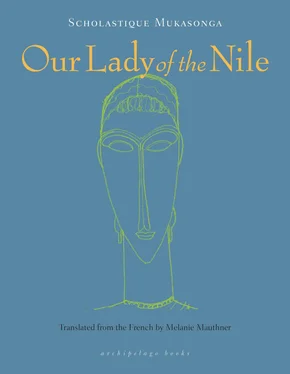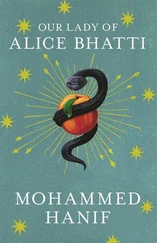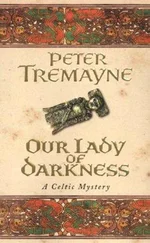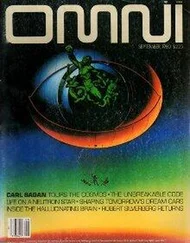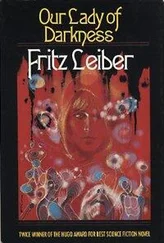But there was worse. The suspicions surrounding Modesta were not only because of her mother. After all, many Hutu leaders had taken Tutsi wives. Trophies of their victory. Wasn’t the President’s wife Tutsi? No, what made Modesta’s situation even worse was her father, Rutetereza, the Hutu who had wanted to become a Tutsi — kwihutura they called it, to “de-Hutufy” oneself. He did indeed have some of the physical attributes associated with Tutsi, he was very tall, with a short nose and a wide forehead, but he was actually one of those many Rwandans referred to as ikijakazi — “neither one nor the other.” He came from a good Hutu family, and spent a few years as a seminary student before becoming secretary, accountant, and steward to a Tutsi chief, of whom he became fond, emulating him and his ways. He grew rich from discreetly, yet diligently, siphoning off some of the taxes he collected on behalf of his boss. He bought cattle. And to show off his new wealth, he gave a cow to a Tutsi neighbor who had lost his own herd. He wanted to hear him exclaim the customary appreciation: “Rutetereza! You who gave me a cow! Yampaye inka Rutetereza !” To complete his metamorphosis, he decided to marry a Tutsi. A poor Tutsi family gave him one of their daughters. One beautiful daughter, in exchange for a cow. His boss had become one of the most conservative leaders of the Tutsi party, and he wanted to follow suit. “Rutetereza,” said his boss, “you’ve done all you can, but you’re still not Tutsi. Stay with your own people.” So he campaigned for a Hutu party that wanted the King to remain in power. But the Parmehutu Party won and the Republic was proclaimed. Nobody gave him any trouble, since he came from a good Hutu family, and had enjoyed the protection of some of his brothers who had fought for the winning Party. But he couldn’t secure any of the important positions, he’d always be a minor civil servant, and there would always be someone to remind him how he’d wanted to turn Tutsi, kwihutura . He would never be free of the jokes, or threats (there was little difference), from those who liked to remind him of his treachery. So he stuffed them with grilled goat and beans, and sloshed them with banana beer and Primus, for that was the price of kwitutsura , of “de-Tutsifying” himself, becoming Hutu again. The same cloud of suspicion hung over Modesta. She had to keep reminding the others that she was a real Hutu, especially Gloriosa, whose name resounded like a slogan: Nyiramasuka, “She of the Hoe.” Modesta had to be Gloriosa’s best friend.
Nevertheless, and for reasons she didn’t grasp, something pushed her to divulge her secrets to Virginia, her deepest secrets, the ones she couldn’t reveal to anyone else. She eventually told her about her nightmares, about the menstrual blood that haunted her dreams. Virginia said nothing at first. She didn’t know what to say. There are many things that are never discussed in Rwanda, and that is one of them. But she was touched by Modesta’s willingness to confide in her. Could she really be her friend? Today, she was. But tomorrow? She, too, began to tell Modesta about her periods. It felt a bit scary to talk about something that was never supposed to be mentioned, but this flow of forbidden words was like a release for her. Yes, in that moment, Modesta was truly her friend.
“You know quite well we’re not to talk about that. Little girls don’t have a clue what’s happening to them. They think they’re cursed. I don’t know if it was like that before the Europeans came, but the missionaries only made matters worse. Our mothers stay silent, it’s taboo, as the teachers would say. It’s always got to be your big sister or a friend who explains it, and reassures you as best she can. That’s what it was like, up on my hill; perhaps it was different in town. My best friend was Speciosa. She didn’t pass the national exam, so she remained in the village. Throughout primary school, we were inseparable. We had so much fun, as much as the boys did. Sure, we helped our mothers in the fields and carried our baby brothers on our backs, we were already little moms. But what we liked best was going to the lake to do laundry. Not like the huge lake you can see from up here every now and then. No, a small lake at the foot of my hill.
“During the long vacation, in the dry season, off we go, all the girls who live on the hill, older girls on one side, younger ones on the other. There’s just two or three brainy girls who don’t feel like joining us; they say they’ve got a meeting with some other students, or that they’ve got choir practice at the mission. We just ignore and tease them. The shore of the lake bristles with reeds and papyrus sedge, except where we draw water and do the laundry. Still, you’ve got to be careful: if a fallen tree trunk lying on the sand starts to shift, that’s a crocodile. We spend the whole afternoon washing and beating the laundry, then we spread it on the grass, which is always green, even during the dry season. Once that’s done, we undress and rush into the water, splashing each other, and rubbing each other’s backs. It’s quite unlike the lycée showers — they’re so sad. Then we go into the papyrus sedge to dry off. We stay there, naked, hidden in the papyrus, watching passersby. We make fun of them …
“But one day, during the long vacation (I was in the sixth grade), I went to fetch Speciosa just like I did every morning. She wasn’t waiting for me at the entrance to the enclosure. I saw her mother running toward me, her arms in the air. ‘Don’t come in,’ she said. ‘You can’t see Speciosa, no one can see Speciosa at the moment.’ I didn’t understand. What contagious disease could Speciosa have caught? I insisted. I asked her, again and again: ‘Speciosa’s my friend, why can’t I see her?’ Finally, she gave in, saying that in any case what was happening to Speciosa would soon happen to me. I stepped inside the house. Speciosa lay on her bed. Under her was a fresh layer of straw. When she saw me, she started to cry. Then she sat up. I saw the grass all soaked with blood. ‘Look,’ she said. ‘That’s my blood. It’s how you become a woman. Every month I’ll be shut up in my room. Mommy told me that’s how it is for women. She takes the straw I’ve soiled, and at night she burns it, secretly. Then she buries the ashes in a deep hole. She’s scared a witch doctor might steal it for his evil spells, and our fields will wither, and my sisters and I will become infertile because of my first menstrual blood that could put the whole family at risk. We won’t be able to play like before. Now I’m a woman, with a woman’s wraparound, and I feel really miserable.’ We never played together after that.”
“It was just like that for me, too. My first period came when I was at school. But before that, at home, I didn’t understand why my mother kept an eye on my chest. You know, out in the countryside, all we wear is a small piece of fabric as a skirt. It’s the only garment that little girls wear. We’re like boys. We all play together. When I turned ten, my mother and her neighbors started to spy on me. Their gaze was focused on my chest when I danced. And as soon as my mother noticed there were these little buds sprouting, she told me to cover them up, and not to show them to any men, not even my father. She gave me one of my brother’s old shirts, showed me how to sit, and especially how to lower my eyes when people spoke to me. ‘It’s only girls with no shame, and the broad-minded women of Kigali, who look a man in the face,’ she used to tell me. It must’ve been the same for you. But now we should be delighted at the sight of blood every month. It means we’re women, real women who’ll have children. You know very well that we must bear children in order to become real women. When they marry you off, that’s what they expect of you. You’re nothing to your new family, or to your husband, if you don’t have children. You must have children, boys, above all boys. It’s when you bear sons that you become a real woman, a mother, worthy of respect.”
Читать дальше
